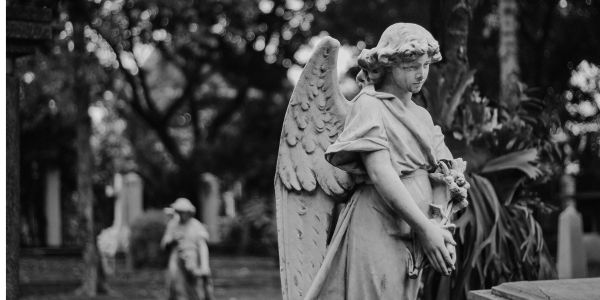In Margaret Laurence’s novel The Stone Angel, the combative central character Hagar Shipley (nee Currie) tells the story of her own life. The reader must be careful not to confuse the narrator Hagar with the author, as sometimes happens, and also not to take her words at face value. The story is told from Hagar’s perspective, and she is biased in her own favour. She is also, as Time magazine described her, an “unregenerate sinner,” a proud, cynical, headstrong rebel, immune to irony and self-criticism, unwilling to compromise, at variance both with her father Jason and her husband Bram, whom she eventually abandons. She is a bitter old woman who exercises a crippling possessiveness over her younger son, and mistreats her own daughter-in-law Doris. She has open contempt for her strict Presbyterian father Jason Currie’s faith in what she derides as his “homilies” or “mottoes,” by which she means his love of aphorisms, part of the accumulated folk wisdom he has inherited, presumably from his own parents. Two favourites of these, his daughter tells the reader, are the following: “God helps those who help themselves,” and “The devil finds work for idle hands.” Such advice Hagar scorns, dismissing it sarcastically as her father’s “Apostles’ Creed,” his “Pater Noster.” She disparages these “homilies” by telling us that Jason Currie “counted them off like beads on a rosary, or coins in the till,” thus equating them with greed and superstition, instead of seeing them as the time-honoured virtues of hard work and self-reliance of pioneering settlers whose blood or genes she would never admit she shares. Hagar’s real problem with authority has everything to do with her personal dislike of her own father, and very little to do with any universal ethical principle. She pays the price for her isolation by novel’s end. In her own church of one, her passing is unlamented. This should not come as a surprise.
An aphorism is a truth often moral in nature, compressed for ease of recall into a single sentence, like “fences make good neighbours.” It is an example of folk wisdom valued for its advice about how best to live, generated by centuries of observation and experience of previous generations, the legacy of a pre-literate past handed on in oral form from parent to child. Hagar’s solipsistic view of life is therefore untenable for the rest of us. John Donne wrote a meditation on an aphorism in his “No man is an island, entire of itself; every man is a piece of the continent, a part of the main.” No one, not even Hagar, is exempt from the triumph, the tears and the turmoil of being human, and all must die, “therefore never send to know for whom the bell tolls” as it is “for thee,” Donne tells his readers, all of whom share the same fragile human shell as the person whose death-knell is then sounding. Some of this wisdom of experience comes in the form of warnings, but most serves as invaluable and kindly-meant guidance. Perhaps the best-known of these pieces of advice is the Golden Rule: “Do unto others as you would have them do unto you” as it is expressed in the Christian Bible (Matthew 7: 12), but this principle of ‘reciprocity’ can be found in many other religions and cultures around the world, as C.S. Lewis argues in his essay The Abolition of Man. Lewis calls these affirmations collectively the “Tao” or ‘natural law,’ the moral code held by common consent to be of supreme social importance. Lewis provides many illustrations of the Tao in the Appendix to this essay, taken from cultures as diverse as Chinese, ancient Egyptian, Hindu, Babylonian, Greek, Roman, Australian aboriginal, and Jewish prescriptions. After all, we are, as an American astronaut said years later, “passengers on Spaceship Earth,” so we are able to think alike, despite our cultural or racial differences.





